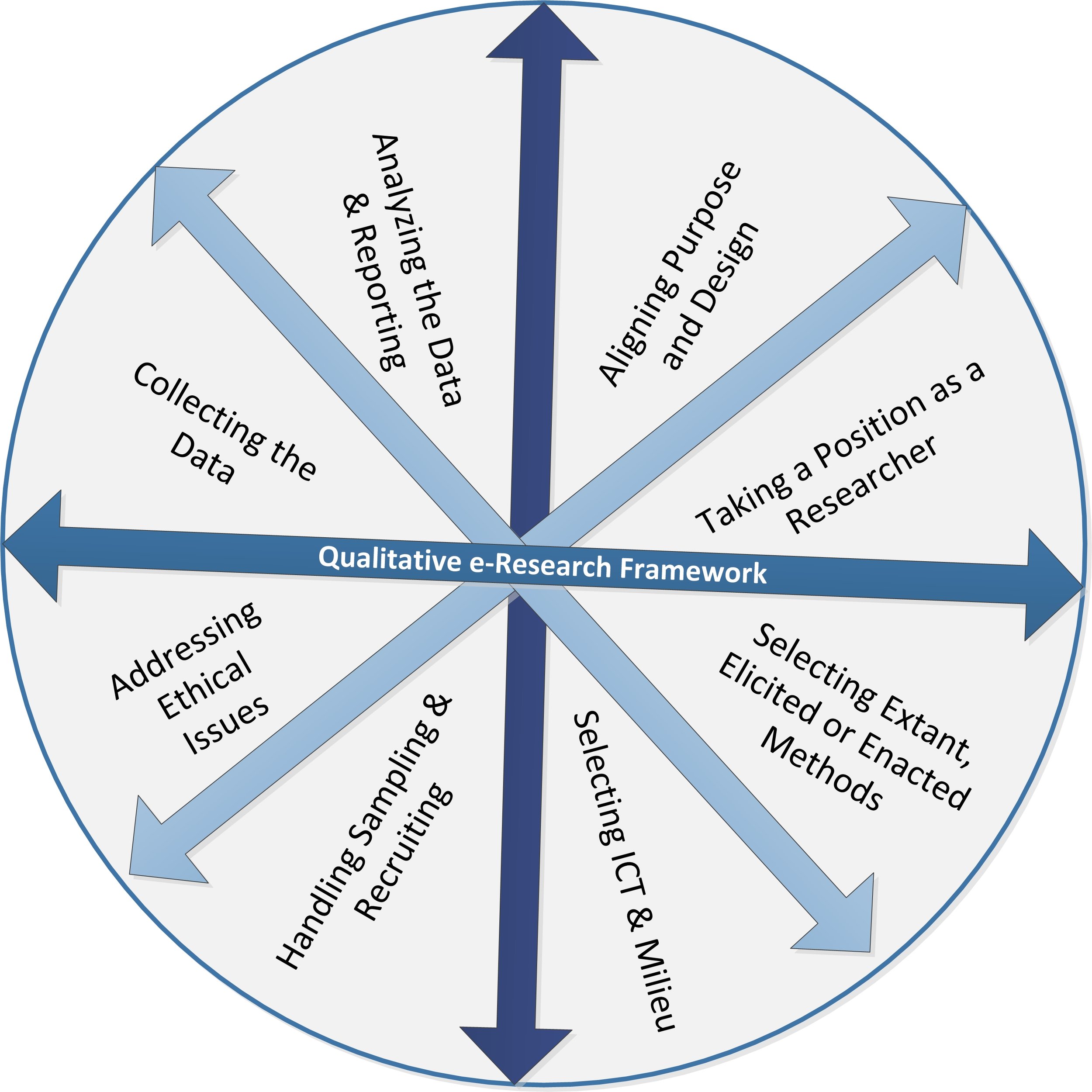Teach and Learn with a Research Case: Mixed Methods for Studying Blogs
By Janet Salmons, Ph.D.
Dr. Salmons is the author of Doing Qualitative Research Online, and Gather Your Data Online. Use the code COMMUNIT24 for 25% off through December 31, 2024 if you purchase research books from Sage.
Let’s use this case to think through the possibilities and potential problems involved with studying blog posts and online discussions.
When we read a journal article it often seems like the research was so easy! Everything went smoothly, there were no problems! Of course the researcher might have encountered many obstacles, struggled with decisions, and had second thoughts about whether they were on the right track - but we won’t find out about them from published articles. How can we learn from their trials and errors? One way is through research cases. Research cases offer the opportunity to go behind the scenes to tell the story of the research experience. Fortunately Sage commissions and publishes research cases, and you can find an extensive collection in the Sage Research Methods database.
As a former professor who favors active learning, I see a lot of potential for learning from cases, whether you are studying on your own or with a group. If you teach methods, consider assigning cases as the basis for individual assignments or team projects. I’ve devised a process for teaching and learning with research cases; you can use the entire set of steps, or adapt the ones that fit your course or seminar.
Sage Research Methods is a library subscription. If your library doesn’t have a subscription, and you would like to access the materials listed here, explore Sage Research Methods (SRM) with a free trial. Find posts that explain how to use SRM tools and features here.
Let’s study a case: “Understanding Online Discussions of Key Public Health Issues Using a Mixed-Methods Approach”
Abstract. There has been a growing movement against vaccination in the United States. The extent to which misinformation and fear fuel decision making has been established by researchers yet needs further empirical understanding. This study aimed to look at one small facet of the provision of information by and for lay people, which was the discussion of vaccination messages on the Internet. Because parents are responsible for obtaining their children’s immunizations, we focused our investigation on discussions of vaccination on top parenting blogs. This case study describes the mixed-methods approach utilized in capturing these discussions.
Meleo-Erwin, Z. C., Basch, C. H., & MacLean, S. A., (2020). Understanding online discussions of key public health issues using a mixed-methods approach. In Sage Research Methods Cases: Medicine and Health. SAGE Publications, Ltd., https://doi.org/10.4135/9781529718157 (Note: This research case is open access until December 31, 2024.)
A Ten-Step Process for Teaching and Learning with Research Cases
Meleo-Erwin and co-researchers show us how they used mixed methods to study posts and discussions on parenting blogs. If we want to collect extant data online, we can benefit from their lessons, whether or not we are interested in the topic or discipline represented in this case.
1. Understand the research approach.
This is a mixed methods study, conducted online. To understand the case, begin by reading the section on research design. Identify the qualitative and quantitative parts of the study. Did the researchers clearly explain why they chose this approach? Summarize the research approach, and highlight the parts of this study that are most relevant to your own research project or plans.
2. State the methodological problem(s).
What challenges did the researchers acknowledge and/or anticipate? How did they support their rationale for using mixed methods? Did they omit any methodological matters you think are important? What ethical dilemmas did the researchers face?
3. Explain how the case author addresses the problem(s).
How did these researchers address the limitations and opportunities present in this study? Summarize the strategies used to address methodological and/or ethical challenges.
4. Identify unanswered questions.
Building on your understanding of the online research, what strategies are missing? Building on your understanding of mixed methods, what strategies are missing? What methodological questions are unanswered? What information is incomplete or inadequate?
5. Broaden the inquiry; research the problem and unanswered questions.
Select one or more of the unanswered questions you identified to pursue further. Find credible sources or examples to fill in the knowledge or information gaps in this case. What do you need to know about online methods, and/or about mixed methods in order to delve more deeply into this case?
6. Offer alternative solutions and methodological approaches to the problem.
Based on your research, what are other options these researchers could take to collect and analyze online data? Provide examples from other studies as relevant. Discuss how the methodological approaches take into account the discipline, purpose, sensitivity, and type of online setting for the study. Have your alternatives addressed any ethical concerns involved with collecting data from blogs or discussion groups?
7. Evaluate each alternative.
Weigh the advantages and disadvantages of the potential approaches you suggested in response to question 6. Compare and contrast your alternative approach to the methods used in this case. Which is better, and why?
8. Offer your best recommendation.
State your recommendation for the best alternative given the circumstances, obstacles, and factors described in the case. Did your recommendation take into account the practical lessons learned by the researchers in this case?
9. Describe implementation.
How would you carry out the steps you suggested in response to question 8? What additional resources would researchers need to implement this approach?
10. Finalize the case analysis.
Complete the paper, presentation, or team project as assigned.































The wealth of material available online is irresistible to social researchers who are trying to understand contemporary experiences, perspectives, and events. The ethical collection and -use of such material is anything but straightforward. Find open-access articles that explore different approaches.